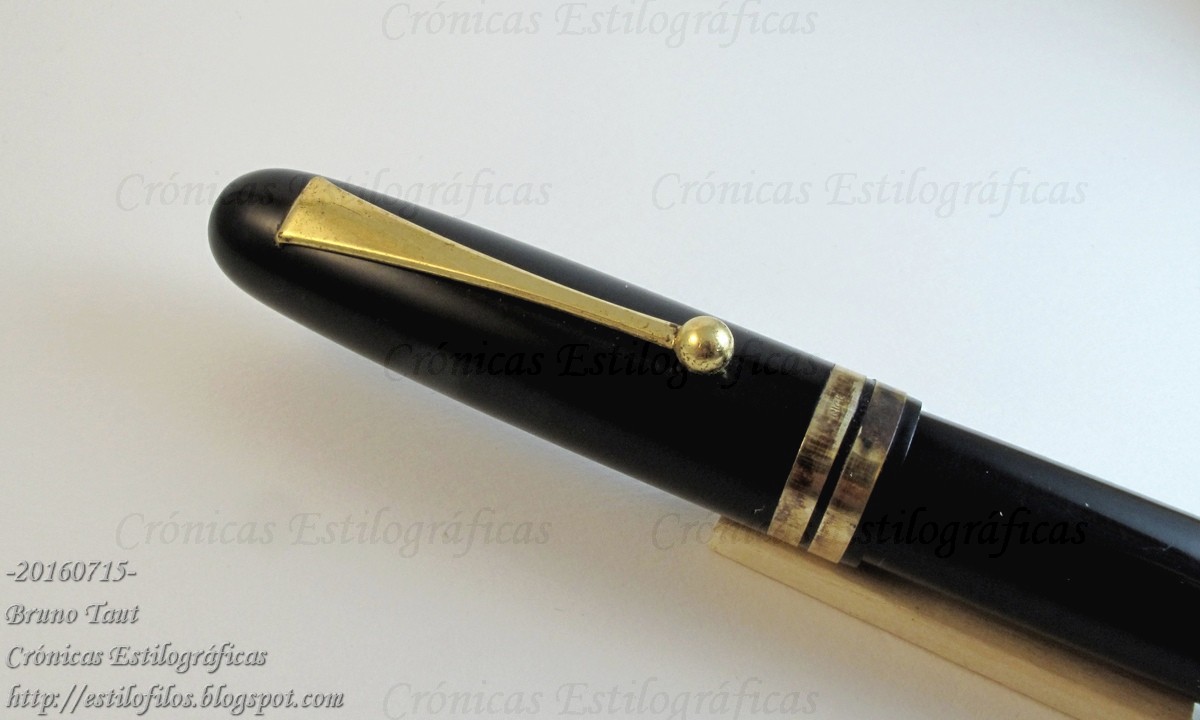Oaso is a small brand and little information about it is available. Some say it is a second brand of the well-known Picasso, from Shanghai. Both brands appear as related on alibaba.com (retrieved July 15, 2016), the website of the Chinese e-commerce company Alibaba Group. Nothing can I say about the official model name, either.

Which one is the Chinese; which one the German? The names are written on the barrels and on the nibs.
This is indeed an obvious copy of the Lamy Safari, but less so than the already reviewed Lanbitou 757. The Oaso shows a very clear difference with respect to the original: the cap jewel. The Lamy cross is now the logo of Oaso, a sort of an ‘O’.
The material of this matte black copy is a bit darker and more polished than that of the charcoal (or umbra) variation of the Lamy Safari. The Chinese nib is made of steel and is chromium coated instead of the black look of some Lamy nibs. However, as was the case with the Lanbitou 757, Lamy’s and Oaso’s nibs are interchangeable.

Their feeds are almost identical. The Chinese version has a worse finish, but the ink flow is correct.

Writing samples of the Oaso 'Safari' with tow nibs--an Oaso F, and a Lamy F. These two nibs behave in a similar fashion.
So are the converters. The Oaso version seems to be an almost exact clone of the Lamy Z28 unit save for the color of the materials. The Chinese copy even has the notches to hook it to the pen. Both are marked with their brand names.
All in all, the Oaso ‘Safari’ is a knockoff of decent quality. And the question is why all these companies bothered copying inexpensive models. The reason seems to lay on the Chinese domestic market, where the Lamy Safari holds relatively high prices. And it seems that these Chinese companies –Lanbitou, Hero, Picasso, Oaso…– have had an effect: Lamy has lowered the prices of the Lamy Safari in the Chinese market to remain competitive.
My thanks to Mr. Mizukushi.
Bank-ei in black urushi – Pilot Blue
Bruno Taut
Nakano, July 15th, 2016
etiquetas: China, mercado, Lanbitou, Oaso, Lamy
Bruno Taut
Nakano, July 15th, 2016
etiquetas: China, mercado, Lanbitou, Oaso, Lamy

















2 comments:
Thank you for enlightening me on why anyone would copy a fountain pen that is already inexpensive! I had been wondering about that.
Thanks you, Andrea, for passing by and commenting. I am happy to be of interest.
Regards,
BT
Post a Comment
Your comments are welcome and appreciated.